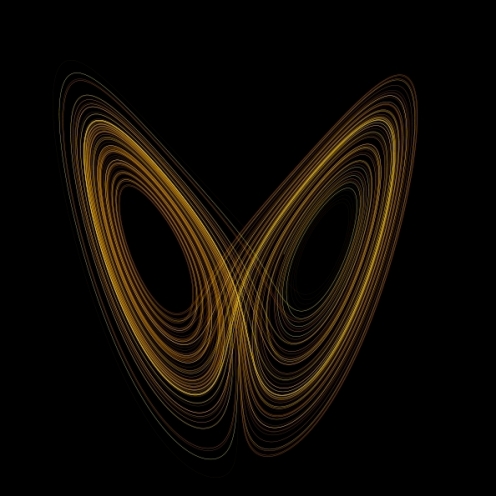What is chaos? We hear the term often enough, what does it mean? There are many aspects of our universe that seem to have no order, make no sense and have no underlying structure. They just ‘are’, and will continue to ‘be’. This is satisfactory for some, but others struggle to accept that some things are just too chaotic for us to ever understand. These same people may also believe that there must be some underlying structure to these systems, that there cannot just be total chaos. Chaos theory is the process of trying to discover the structures and processes that are present within these systems and to understand and predict future outcomes. At this stage it may be useful to mention a few systems that are chaotic in their structure. There are changes in the weather, the movement of satellites in the solar system, ecology and population growth, molecular vibrations. There is also speculation over the existence of chaotic dynamics in plate tectonics and in economics. Ecology still remains one of the best examples of a chaotic system. Population growth and distribution, like all chaotic systems, are very dynamic and deterministic, meaning that future outcomes depend heavily on initial conditions. This is the basis of chaos theory: the hope that we can understand the structure and differences caused in various outcomes through differences in the systems initial input. Read more »
